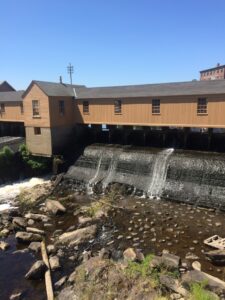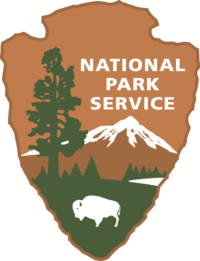Rivers, Renewables, and Revolutions:
How Science Understanding Informs Innovations in Engineering
A 5-Day Summer Professional Development Institute for Grades 6-12 Educators
 Explore the living laboratory of Lowell and the Merrimack River Watershed through inquiry-based, minds-on, hands-on experiences. Using the mill industry of Lowell as a model, discover how scientific understanding continues to inspire and inform innovations in engineering and ecological protection. Learn how the flow of confluence of two rivers — the Concord and Merrimack was used to power mill production. Engage with local engineers and historians to better understand the technologies that harness the power of the water. Experience how the engineering design process works and then design and build a model mill-and-canal system to gain an understanding of how water’s potential energy is transformed into the kinetic energy that powered Lowell’s machines. Delve into the evolution of scientific understanding about ecological systems and develop an understanding of how the watershed is recovering from its more toxic, industrial past. Find out how local organizations and scientists are working to protect the ecosystems today and in the future.
Explore the living laboratory of Lowell and the Merrimack River Watershed through inquiry-based, minds-on, hands-on experiences. Using the mill industry of Lowell as a model, discover how scientific understanding continues to inspire and inform innovations in engineering and ecological protection. Learn how the flow of confluence of two rivers — the Concord and Merrimack was used to power mill production. Engage with local engineers and historians to better understand the technologies that harness the power of the water. Experience how the engineering design process works and then design and build a model mill-and-canal system to gain an understanding of how water’s potential energy is transformed into the kinetic energy that powered Lowell’s machines. Delve into the evolution of scientific understanding about ecological systems and develop an understanding of how the watershed is recovering from its more toxic, industrial past. Find out how local organizations and scientists are working to protect the ecosystems today and in the future.
Wade Institute for Science Education instructors will weave inquiry, phenomena, scientific literacy, and the Science and Engineering Practices into the science concepts explored. Participants will investigate real-world phenomenon and learn how to structure a lesson around a related phenomenon. You will experience modeling of how the Science and Engineering Practices work in the classroom. You will leave the Institute with more confidence in teaching engineering concepts and local resources to support your teaching.
Registration Information
Region: Lowell
Dates and Times: July 8th-12th, 2024 (8:30 AM-3:30 PM ET)
Location: Middlesex Community College, Lowell and Tsongas Industrial History Center, Lowell
Collaborating Partners: Tsongas Industrial History Center; Lowell National Historical Park; UMass Lowell History Department; Lowell Parks & Conservation Trust
Cost: $475 per educator. $425 per educator if attending in a team with two or more other teachers from the same school or district.
PDPs and Optional Graduate Credit: 40 PDPs available without graduate credit. 67.5 PDPs and 3 graduate credits from Cambridge College or Framingham State University available for $225. Additional work is required for graduate credit.




